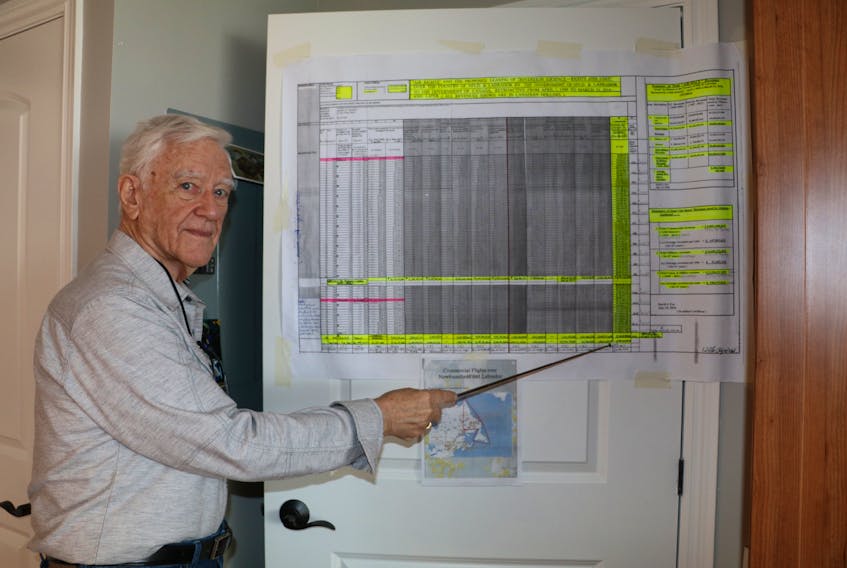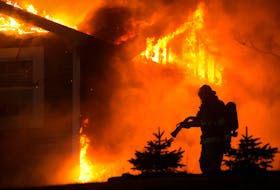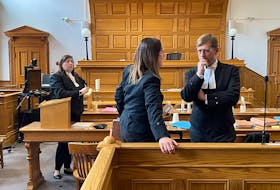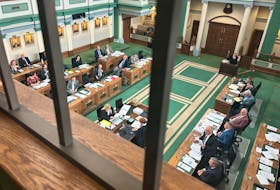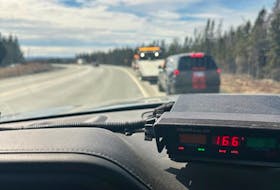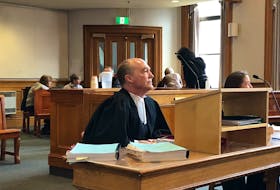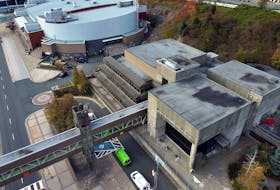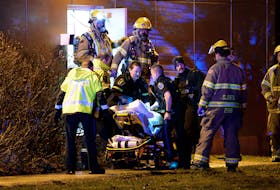The claim by a retired engineer that Newfoundland and Labrador still owns its airspace and should receive more than $9.85 billion for its use since Confederation is not taking off with the provincial government.
In a statement to The Telegram Thursday, the provincial government said it has examined the issue a number of times in the past and has not found a basis for a legal claim.
“The Department of Justice and Public Safety has examined the constitutional issue of the ownership and control of airspace on a number of occasions for government,” it said. “Government does not plan to bring any legal action in respect of this matter in the foreseeable future.”
In a Telegram story last week, David Fox claimed his research shows that Newfoundland and Labrador has continued to be the sole owner of its airspace since 1949, and that the federal government has collected about $19.7 billion, including interest, on it since that time.
He said that if half went toward providing aviation services, then the remaining half — about $9.85 billion — should be returned to the province.
Fox has worked as an engineer in both Newfoundland and Labrador and Nova Scotia, and was the port manager and CEO of the St. John’s Port Authority from 1980 until his retirement in 1998.
He said that through his work with the port authority he became quite familiar with user-pay systems — by which airspace revenue is obtained.
Fox said the provincial government’s response does not surprise him, and will not deter him.
He said he had contacted government ministers and premiers in the past about the issue and rarely got a response.
“I’m going to continue on with my research and talk to more people,” he said. “(The government) doesn’t want to touch this at all, but we’ve got to keep up the push to make them look at it. We can’t afford to let it die.
“I’m going to keep going with regard to doing research on this, whether government does it or not. I started off in the early 2000s. I’m going to keep updating the numbers. As you update, the money gets bigger. The number is only going to get bigger with time.”
Fox said that in 1944, as a British dominion with suspended status, Newfoundland representatives attended the “Chicago Convention” on International Civil Aviation. The Newfoundland representatives were part of the United Kingdom delegation.
The international agreement on civil aviation reached at that time was signed by the United Kingdom on behalf of Newfoundland and Labrador, giving the dominion control of its airspace.
Fox said his interpretation of this province’s Terms of Union with Canada shows it does not contain the transfer of ownership of the airspace to Canada.
Others disagree.
Fox said he has read and heard the arguments of those who say he is wrong, but suggests only proper research into the issue will determine who is right.
“I’ve gone through that argument time and time again for the last 10 years,” he said. “It’s the way the Terms of Union was written. I’m going to stick to my opinion and I’m going to improve on my research.”
Fox first went public with his theory in the mid-2000s. A Feb. 26, 2005 Telegram story referred to briefing notes prepared for then-premier Danny Williams on the issue after Fox had been interviewed about his theory in local media.
The briefing notes suggested the province would not have reaped millions yearly from control of its airspace and, in fact, may have lost money if it had maintained that control.
The briefing notes referred to Term 31 of the Terms of Union which states that “Canada will take over the following services and … the public costs incurred in respect of each service taken over, namely … civil aviation, including Gander Airport.”
Fox, however, refers to Term 33 of the Terms of Union. He said it itemizes the exact public works and property of Newfoundland which, upon Confederation, would become the property of Canada. Airspace, an important asset to any country, he noted, wasn’t included on that list.
Fox said he has carefully calculated and charted all the fees that would have been collected since 1949. He believes his numbers are correct.

